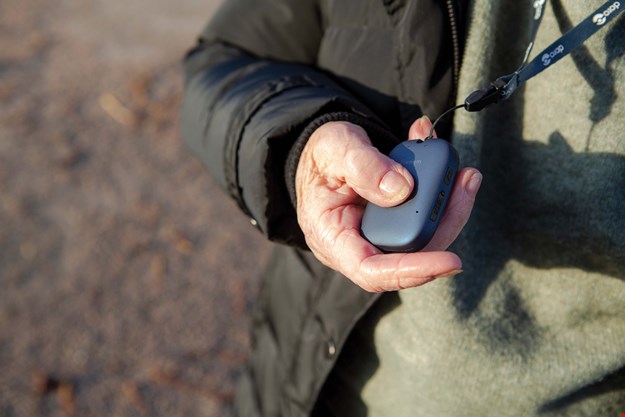-
Country
-
Search
Country

Search
All too often there are reports about new searches for a missing person. That person is often an elderly person, whose cause of disappearance varies, from forgetting their way back home from a walk to an accident, such as a fall where they can’t get back up again.
Last year, the police force in Sweden reported 25 686 missing people cases, of which 24% revolved around people diagnosed with dementia. Studies also show a significant lack of reporting of missing people with dementia, as it is often family members or home carers who find the person and don’t report it to the police.
Dementia is often described as “the relative’s disease”, as concern for the person’s well-being becomes the cause of serious mental strain. A concern that for some people is present every hour of the day. But with the help of technologies such as mobile safety alarms and GPS watches, this concern can be alleviated. Several studies from different Swedish universities show that this technology contributes to a greater sense of safety among the users and their relatives.
There is always a deep sense of concern when someone goes missing, for both the missing person and his or her relatives. In addition, large societal resources are needed when involving the police in the search effort for a missing person. What if there was a way to relieve the concern, whilst also improving search efforts?
One part of the solution is already here, but it’s not used to the extent needed. We should ask ourselves – how can we get more people to be aware of the security benefits that a mobile safety alarm with a GPS function can have for them? One suggestion for how we can get more people aware is to spread the knowledge and the research in the field. And let good initiatives and examples show the way forward.
Hasse Lagervall is one of the leading figures in the Swedish non-profit organization Missing People, which is an organization that helps the police to arrange search operations for missing persons.
He believes that their search efforts could be simplified with the help of more digital solutions, such as a mobile safety alarm with GPS function. If users then find themselves in an emergency where they need help, they can easily press an alarm. In this way, people with dementia or others who are lost, can easily be found much faster

Although there is no cure for dementia currently, there are many ways we can make life easier for the diagnosed and their families. Research on dementia is advancing and today we know more about it than just a few years ago. Mobile safety alarms and GPS watches are untapped resources that could make life easier and contribute to a sense of freedom for the elderly, as well as their loved ones. It’s an extraordinary asset that should be seen on more wrists.
Read more about mobile safety alarms and what a remarkable resource they can be for search efforts such as Missing People, in Careium's publication “Mobile social alarms provide freedom and safety for older people”.

